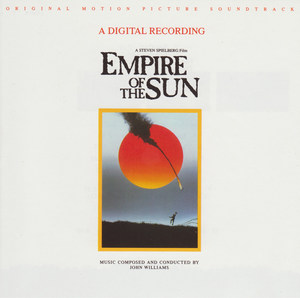

..:: audio-music dot info ::.. |
| A l b u m D e t a i l s |
 |
Label: | Warner Bros. Records |
| Released: | 1987.12.09 | |
| Time: |
54:29 |
|
| Category: | Soundtrack | |
| Producer(s): | John Towner Williams | |
| ing: |  |
|
| Media type: | CD |
|
| Web address: | www.jwfan.com | |
| Appears with: | ||
| Purchase date: | 2012 | |
| Price in €: | 1,00 | |
| S o n g s , T r a c k s |
| A r t i s t s , P e r s o n n e l |
| C o m m e n t s , N o t e s |
Exsultate Justi
Laudamus te, laudamus !
We praise you, we give praise !
Exsultate, justi, in Domino;
Exult, you just, in the Lord;
Exsultate in Domino.
Exult in the Lord.
Exsultate, justi, in Domino;
Exult, you just, in the Lord;
rectos decet collaudatio.
praise from the upright is fitting.
Alleluia, Alleluia !
Salvator Dominus, Salvator mundi :
The Lord is Savior, Savior of the world :
Qui tollis peccata mundi.
You who take away the sins of the world.
Cantate ei canticum novum,
Sing to him a new song,
bene canite ei cum clangore.
pluck the strings skillfully with shouts of gladness.
| L y r i c s |
| M P 3 S a m p l e s |